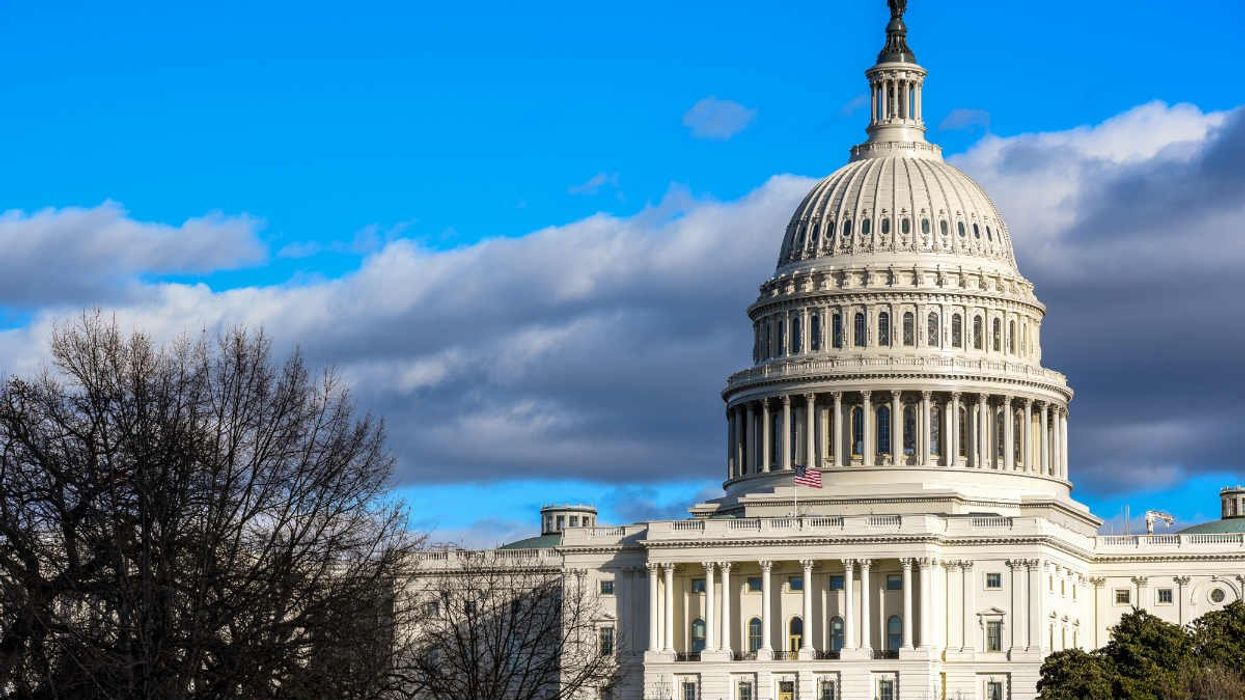
Toshe O/Getty Images
Warrantless “backdoor” searches of Americans’ private electronic communications under the Foreign Intelligence Surveillance Act are modern versions of the general warrants used and abused by King George III.
The FBI has used Section 702 of the Foreign Intelligence Surveillance Act to conduct warrantless “backdoor” searches of the private electronic communications of American citizens. It has done so, moreover, not just sporadically and by accident but quite deliberately and on hundreds of thousands of occasions.
While the technology employed in those searches may be new, the issues surrounding it are not. In fact, they have been hundreds of years in the making.
Just as Wilkes’ story ended badly for King George III, our story will end badly for Congress if it reauthorizes FISA 702 — even temporarily — without fixing it.
In 1763, John Wilkes — a member of the British Parliament — was arrested and his home subjected to an aggressive search because he wrote and published No. 45 of a periodical known as the North Briton.
North Briton No. 45 had infuriated King George III and his ministers because it called out their widespread and unlawful use of “general warrants” — official documents authorizing searches and seizures that were backed by neither evidence establishing probable cause nor a specific description of the intended target. In essence, general warrants purported to tell the king’s officers, “Go search for evidence of a crime in any home or other place you might expect to find it, and then seize it.”
Unwittingly proving Wilkes’ point, the king’s men used general warrants to search his home and the homes of others suspected of participating in the publication of North Briton No. 45.
After spending several days locked in the Tower of London, Wilkes returned to his home to find it in complete disarray, with many items severely damaged and others missing altogether. Incensed by the injustice, he challenged the validity of the general warrant at issue and sued the officers who had conducted the search. Long story short: Wilkes won and was awarded a large sum of money as part of the victory.
As word of his victorious effort spread, Wilkes’ story quickly became famous on both sides of the Atlantic, leading ultimately to the adoption of the Fourth Amendment of the U.S. Constitution. The number 45 (referring to the publication that had offended the king and sparked the entire episode) became synonymous with both John Wilkes and the cause of liberty in England and the American colonies. Indeed, one might say that “45” became the “Roll Tide” of those who wanted to be free from unreasonable searches and seizures.
As Wilkes became a cult figure in the colonies, a motto of sorts based on the Apostles’ Creed was written and published in Boston. It began, “I believe in Wilkes, the firm patriot, maker of number 45, who was born for our good, suffered under arbitrary power, was banished and imprisoned …”
Elsewhere in the colonies, Wilkes was honored by the naming of Wilkes County, Georgia; Wilkesboro, North Carolina; and Wilkes-Barre, Pennsylvania.
Even George III's own young children caught the Wilkes fever. They sometimes opened the door to their father's room and cried, “Wilkes and number 45 forever!” just to prank the monarch.
John Wilkes would be shocked by FISA 702, which the FBI has used hundreds of thousands of times to spy on Americans without a warrant. There have been essentially no consequences for the agents and agencies who repeatedly violate the Fourth Amendment.
As a lawmaker and an advocate of liberty, he’d be appalled that the U.S. Congress is preparing to reauthorize FISA 702 — without a single reform.
Congress is making this decision not on its own merits but as part of a last-minute addition to the 3,000-page National Defense Authorization Act for fiscal year 2024. Congress is obscuring its own indefensible actions by hiding this provision in a lengthy “must-pass” bill dealing with other, far less controversial matters.
Shameful.
There are currently two meaningful FISA reform bills before Congress: the bipartisan Government Surveillance Reform Act that I introduced with Senator Ron Wyden (D-Ore.), and the End Warrantless Surveillance Act by U.S. Rep. Andy Biggs (R-Ariz.), which has already passed the House Judiciary Committee by a vote of 35-2.
I humbly implore my Senate colleagues — and our counterparts in the House of Representatives — to remember the lessons learned from John Wilkes and North Briton No. 45. Do not rubber-stamp this continued FISA abuse as part of the NDAA.
Warrantless “backdoor” searches of Americans’ private electronic communications under FISA 702 are simply modern incarnations of the general warrants used by King George III. Like general warrants, backdoor searches under FISA 702 are carried out without any of the safeguards created to protect life, liberty, and property from the kind of harm that an unrestrained government is uniquely capable of inflicting.
Just as Wilkes’ story ended badly for King George III, our story will end badly for Congress if it reauthorizes FISA 702 — even temporarily — without fixing it.
Mike Lee